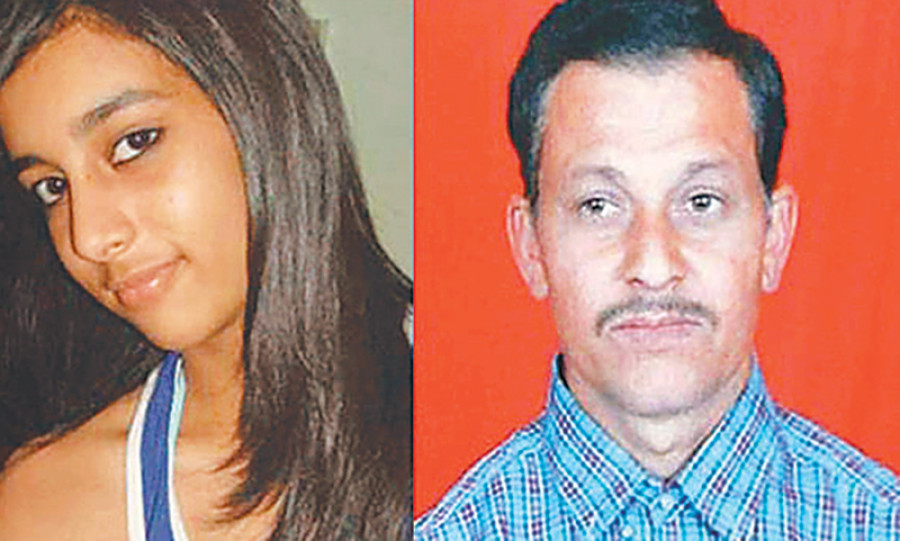National
India supreme court to review acquittal ruling Arushi-Hemraj murder
The Supreme Court (SC) of India has decided to hear the joint appeals challenging the Allahabad High Court’s decision to acquit Rajesh Talwar and his wife Nupur Talwar in the 2008 Aarushi-Hemraj murder case.
Suresh Raj Neupane
The Supreme Court (SC) of India has decided to hear the joint appeals challenging the Allahabad High Court’s decision to acquit Rajesh Talwar and his wife Nupur Talwar in the 2008 Aarushi-Hemraj murder case.
A bench headed by SC Justice Ranjan Gogoi last week said the Central Bureau of Investigation (CBI)’s appeal would be heard along with the pending petition filed by Khemkala Banjade, Hemraj’s wife.
Both the appeals have challenged the exoneration of the Talwar couple, the parents of Aarushi.
With the SC decision, the hearing on the double murder case of Aarushi and Hemraj will continue at the SC—a decade after the incident.
On March 8, the CBI on had filed the petition at the SC, challenging the decision of Allahabad High Court to acquit the couple.
The High Court had acquitted the Talwars in the murder case of their 14-year-old daughter Aarushi and their Nepali domestic help Hemraj on October 12 last year, citing that they could not be held guilty on the basis of the evidence on record.
Khemkala had then filed a petition at the SC against the High Court ruling in December.
Aarushi was found dead inside her room at the Noida residence of the Talwar family with her throat slit on May 16, 2008.
Hemraj Banjade, 45, who went missing following Aarushi’s death, was the prime suspect, but his body was recovered from the terrace of the house the next day.
Though Noida police had initially investigated into the case, it was later handed over to the CIB.
A special team was formed to look into the case after the CIB could not conclude its investigation.
The CIB had filed the petition at the Special Court based on the investigation report of the special team.
In 2013, the Ghaziabad-based Special Court of CIB convicted the Talwar couple and sentenced them to life in prison for the twin murder as well as for destroying the evidence and misleading the investigators.
In October 2017, the Allahabad High Court, however, overturned the Special Court’s ruling and gave a clean chit to the Talwar couple.
The High Court in its verdict had suspected other Nepali domestic helpers Krishna Thapa and Raj Kumar, who were found not guilty by the CIB, in the murder case.
The Delhi-based Nepali community and its organisations have been protesting the verdict of the High Court.
“The decision of the Allahabad High Court was prejudiced. In the verdict, Krishna Thapa and Raj Kumar have been kept under suspicion,” said Thakur Khanal, secretary of the Mulprabaha Akhil Bharat Nepali Ekata Samaj.
The CIB, however, has not lodged any charges against the duo.
Khanal said that none of the Nepalis, who knew about the incident, were called during the hearing at the court. He hailed the recent SC decision and expressed hopes that the court would deliver a fair verdict this time.




 9.7°C Kathmandu
9.7°C Kathmandu














